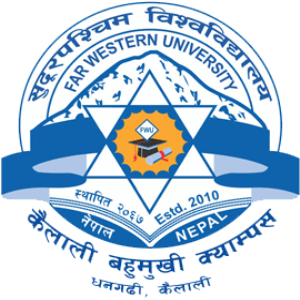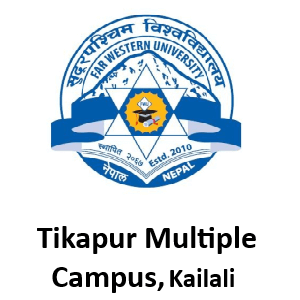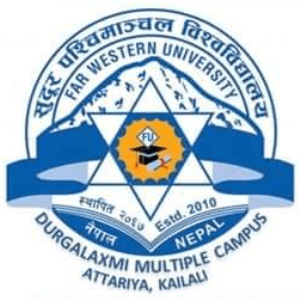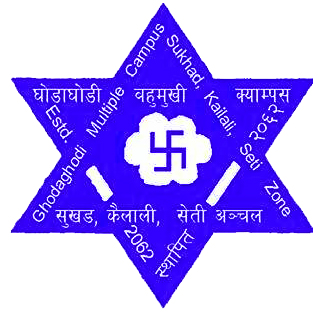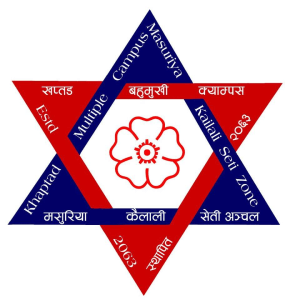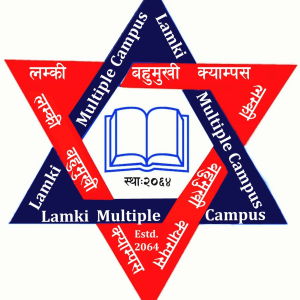Overview
Bachelor of Arts (BA) at Rastriya College, Sukhad, Kailali
The Bachelor of Arts (BA) program at Rastriya College, Sukhad, is affiliated with Tribhuvan University and runs under the Faculty of Humanities and Social Sciences.
It is a four-year academic course introduced as part of TU's nationwide curriculum reform.
The program aims to provide broad-based knowledge across multiple disciplines, with specific focus areas that reflect the social, cultural, and developmental needs of Nepal.
Course Highlights
| Key Information | Details |
|---|---|
| College Name | Rastriya College, Sukhad, Kailali |
| Program | Bachelor of Arts (BA) |
| Affiliation | Tribhuvan University (TU) |
| Duration | 4 Years (Annual Examination System) |
| Evaluation Method | Written Exams (70%) + Internal Assessment (30%) |
| Medium of Instruction | English and Nepali |
| Seats Available | As per college policy |
| Scholarship | Available for marginalized and deserving students |
Curriculum Details
The BA curriculum is structured around interdisciplinary learning. Students study core subjects, including Compulsory English, Nepali, and Nepal Studies, while selecting two major subjects (each worth 700 marks) and two electives (each worth 100 marks).
Some of the major and elective options offered under the TU framework include:
-
Sociology
-
Rural Development
-
Economics
-
Political Science
-
History
-
Population Studies
-
Social Work
-
English
-
Psychology
-
Anthropology
The program includes a total of 2,000 marks distributed evenly over four academic years. Internal assessments include classroom participation, mini-projects, and group assignments.
Objectives
-
Offer academically sound and socially relevant education
-
Provide students with the tools to understand Nepal's social and economic issues critically
-
Create pathways for future careers in public service, teaching, research, and local development
-
Promote a deeper understanding of cultural, linguistic, and historical diversity
Scope
BA graduates can pursue advanced degrees in disciplines such as Sociology, Rural Development, Anthropology, Population Studies, or Political Science.
The degree also opens up pathways for public administration, journalism, education, and social work, particularly in Nepal’s rural and development-focused sectors.
Learning Outcomes
-
Develop analytical and research skills
-
Gain historical, social, and political awareness
-
Communicate clearly in academic and professional contexts
-
Understand the complexities of Nepalese society through multiple lenses
Skill Development Modules
-
Research Writing
-
Field Study Reports
-
Public Speaking and Presentation
-
Data Interpretation in Social Sciences
-
Project-based Group Work
Teaching Methodology
Teaching at Rastriya College includes a mix of:
-
Lectures and group discussions
-
Multimedia-assisted learning
-
Field visits and report submissions
-
Internal evaluations and mini-projects
Admission Requirements
-
Minimum D+ in all subjects in Grades 11 and 12 (NEB or equivalent), or
-
Passed Proficiency Certificate Level (PCL) or 10+2 from a TU-recognized institution
-
For subjects like Journalism or Major English, prior subject-specific background may be required
Career Opportunities
Graduates can explore entry-level roles in:
-
Government service (via Public Service Commission exams)
-
NGOs and INGOs
-
Teaching and academic research
-
Rural development agencies
-
Journalism and mass communication
Scholarships and Financial Aid
Rastriya College offers scholarships based on:
-
Financial need
-
Academic performance
-
Inclusion criteria (Dalit, Janajati, Madhesi, female, and remote region students)
Why Choose This Course?
The BA program at Rastriya College serves students who are passionate about understanding society and making a positive contribution to community development.
The course is especially suitable for those aiming to build careers rooted in public service, local governance, or academic research without needing to leave their home region.
Conclusion
The BA program at Rastriya College offers more than just classroom learning—it helps students understand the world around them, question social structures, and engage in meaningful community work. With its flexible subject combinations, scholarship support, and a curriculum recognized by Tribhuvan University, this program remains a reliable choice for students in Sudurpashchim Province.


